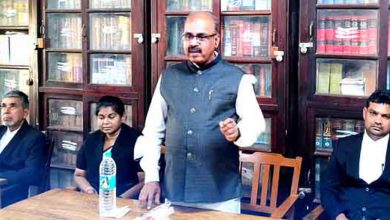Telangana News: Telangana approves 5% reservation for disabled people

Hyderabad. Hyderabad: The Telangana government on Wednesday issued a directive to implement five per cent reservation for persons with benchmark disability in all higher education institutions, including government and aided institutions. The initiative also includes relaxation in the upper age by five years for admission. The directive, issued on June 25, 2024, comes under the Rights of Persons with Disabilities Act, 2016, which mandates such reservation and age relaxation to ensure equal educational opportunities for persons with disabilities. According to the government order, this policy is in line with Section 32 of the RPwD Act. This section specifies that all government institutions of higher education and other higher education institutions receiving government aid must reserve at least five per cent of seats for persons with benchmark disability. In addition, these persons are entitled to relaxation in the upper age by five years for admission to these institutions. The directive emphasises the importance of inclusive education, acknowledging that social barriers often impede the full potential of persons with disabilities. The government aims to provide equal opportunities by ensuring that educational institutions are accessible and equipped to meet the academic needs of students with disabilities. This includes providing ramps, lifts, accessible toilets and other necessary facilities to make the campuses disabled-friendly.
Furthermore, the implementation of this reservation policy is expected to address long-standing issues faced by persons with disabilities, including lack of awareness about their rights, financial barriers and inadequate academic support. Universities are required to provide fee concessions and other financial support to reduce the economic burden on students from low-income families.
The directive has been forwarded to various departments to ensure immediate implementation.
This policy not only complies with national legislation but is also an attempt to align with international standards set by the United Nations Convention on the Rights of Persons with Disabilities, to which India is a signatory.





